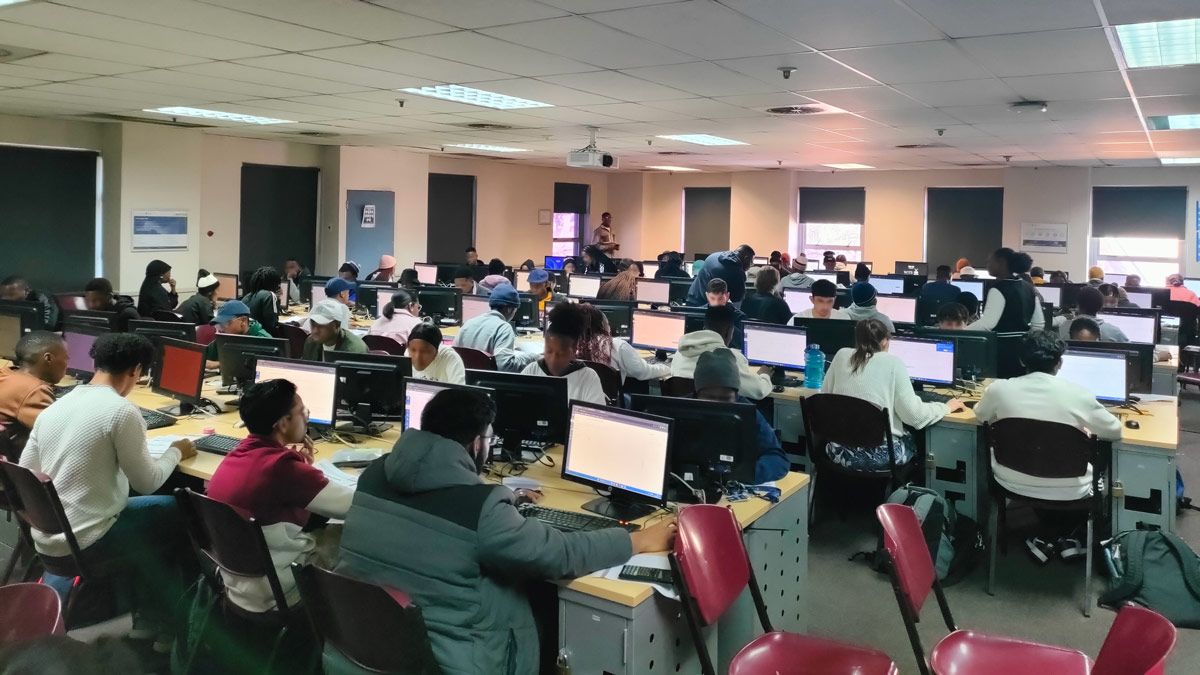MATLAB Course Equips Students with Computational Skills
“While you may have all the tools, unilaterally designing a program without appreciating the students’ reality may end up completely compromising its value. Therefore, we didn’t want all these barriers to be a limitation to the success of this program.”
Key Outcomes
- Easy access to a collaborative Wits engineering course based on MATLAB without the need for high computing power fostered diversity, equity, and inclusion
- Cooperation between industry and academia empowered teaching assistants to deliver the course in line with the Academic Development Unit guidelines at Wits
- With the Common Cartridge format, the course can be directly imported to the LMSs of other institutions, with File Exchange serving as a place to discuss the evolution and improvement of content
At the University of the Witwatersrand (Wits) in South Africa, Professor Rodney Genga recognizes that students come from different backgrounds and often have unique learning needs. In 2022, Professor Genga therefore used MATLAB® and Python® to design a course that focuses on equipping first-year engineering students with entry-level programming skills and other computing competencies.
Together with Opti-Num Solutions, a MathWorks reseller based in South Africa, the Engineering Design 1B course was devised using Wits’ Campus-Wide License, which provides students and faculty easy, unlimited access to MATLAB and Simulink® products. For instance, students who did not have the necessary computing resources to run MATLAB on a desktop could access it through any web browser–enabled device via MATLAB Online™. Those seeking additional material to understand the course content enrolled on the MATLAB online training courses website and began working through self-paced courses. In addition to reading class notes, they could write, run, and debug code directly on their live scripts. Teaching assistants were also trained to deliver the course by Wits, MathWorks, and Opti-Num.
For faculty, MATLAB Grader™ provides an all-in-one teaching solution, enabling individualized feedback for large class sizes (the Wits Engineering Common First Year program had 961 students divided into five cohorts). Specifically, students receive instant guided feedback upon submission of the tutorials, allowing them to work through exercises in their own time and receive feedback to assist them in correcting their work instantly. This also drastically reduces the number of consultations required. Additionally, detailed analytics on MATLAB Grader for each submission allow lecturers to analyze student performance, pick out gaps in understanding, and correct misunderstandings regarding the content.
The courseware is also integrated into the university’s Learning Management System (LMS) Ulwazi (Canvas), allowing students to access teaching tools such as MATLAB Grader and live scripts—along with online and virtual tutoring by teaching assistants—by simply signing into their university account. Students work in groups, which is essential to keep them engaged and share skills others may not yet possess.
In its first run, the course served 950 engineering students. Initial results indicate that it considerably improves students’ abilities, helping foster personal growth and real-world employability skills. The course can be transferred to other learning environments as well and is freely available in File Exchange and GitHub®. The experience has encouraged Wits to consider similar projects at other faculties or for higher-year students.
Acknowledgements
- University of the Witwatersrand: Mr. John Ekoru, Mr. Tebatso Phala, Dr. Yuval Genga, Dr. James Braid
- MathWorks: Dr. Marco Rossi
- Opti-Num Solutions: Jon Esteves, Cardon Perumal, Adri van Nieuwkerk, Kirsten Smith
